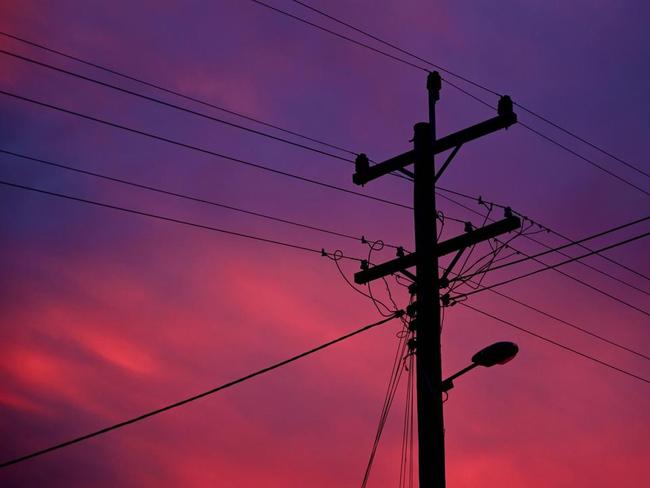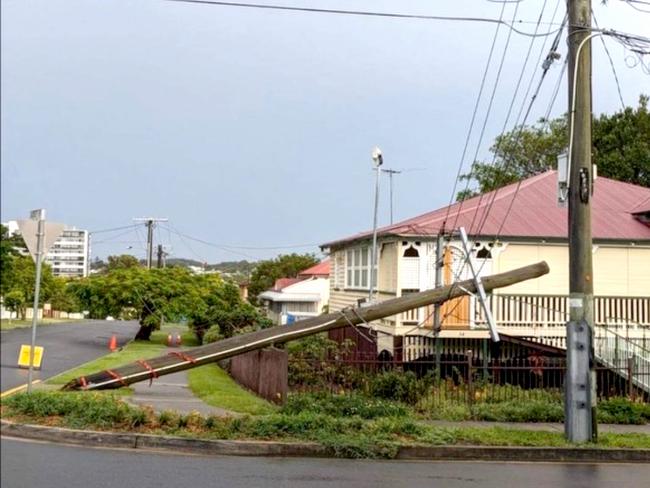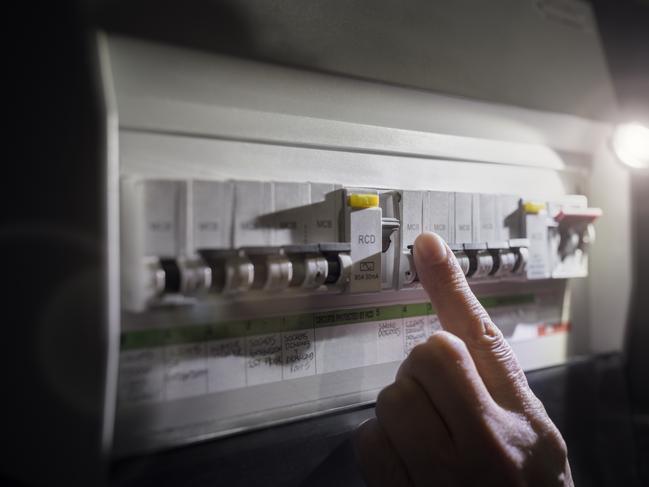Power outages in Brisbane, North Queensland, Gold Coast, Australia: Your questions answered
Power outages can have devastating impacts right across Australia. These are all your questions answered.
QLD News
Don't miss out on the headlines from QLD News. Followed categories will be added to My News.
Power outages can have devastating impacts right across Australia.
These are all your questions answered and what you need to know >>>
Jump to:
How can I find out if there is a power outage in my area?
How long does a fridge last without power?
How do I know if food is safe to eat?
Why did my power suddenly go off?
How long can it take to fix power outages?
How do I turn my power back on?
What do I need if my power goes out?
How can I find out if there is a power cut in my area?
Powerlink Queensland encourages people to follow them on Twitter and Facebook for the latest updates on emergency transmission network outages.
“If you have lost power to your home or business unexpectedly or are unsure if the power is scheduled to be turned off in your area for maintenance – visit Energex or Ergon Energy’s websites to stay informed.”
Energex has a power outages finder map.

How long does a fridge last without power?
The Australian Institute of Food Safety recommends:
■ Keep refrigerator and freezer doors shut as much as possible, as this helps to maintain cold temperatures to the greatest degree possible.
■ Make a note of when the power went out. How long the power is out will determine whether or not your food will remain safe to eat after it goes back on.
An unopened refrigerator will keep food cold for about four hours. An unopened freezer that is full to capacity will retain its temperature well enough to preserve food for two days, while a half-full freezer can accomplish this for about 24 hours.
How to know if food is safe during or after a power outage?
For perishable food items, follow the 2 hour / 4 hour rule to ensure food safety. In its simplest form, this rule states:
■ If the power was out for less than 2 hours, it’s okay to refrigerate or consume the food.
■ If the power was out between 2 and 4 hours, the food is okay to consume but don’t put it back in the refrigerator.
■ If the power was out for more than 4 hours, discard the food.
When the power comes back on it’s recommended you discard any food, especially raw meat, that shows obvious signs of spoilage, such as foul odours, sticky or slimy texture or unusual colour — even if the power was out for fewer than four hours.
Check frozen items carefully. If items are frozen hard and there are still ice crystals on the inside of the packaging, the food may be refrozen.
Discard any frozen food items that have begun to thaw (no longer frozen hard) or have developed freezer burn from being defrosted and then refrozen.
Source: Australian Institute of Food Safety

Why did my power suddenly go off?
Blown fuses, tripped safety switch or faulty circuit breakers are the most common causes of localised power outages, according to AAMI.
“If this has happened, the power will go out in a specific area of your home, the switchboard will need to be reset,” the website states.
However, according to Powerlink Queensland, neighbourhood and wider outages can be attributed to:
“ … Planned maintenance on the transmission or distribution network through to unexpected outages as a result of severe weather, heatwaves or even technical issues.”
How long does it take to fix fallen power lines?
While it can be hard to nominate an exact timeframe, Energex states: “When restoring power, our top priority is the safety of the public as well as our employees working on powerlines.”
“We restore power to our vast network … to customers in order of priority.”
“Our focus is on first restoring power to public health and community facilities and to the greatest number of customers as quickly as possible.”
The typical sequence in the restoration process is as follows:
■ Transmission, substation equipment and main distribution powerlines. High voltage transmission lines supply power to large numbers of customers and to large geographic areas. Distribution substations and distribution powerlines serve a critical linking and switching function in our system. Protecting and repairing damage to these three components is our first priority.
■ Essential facilities in our communities including emergency service and critical community infrastructure such as hospitals, police, ambulance, fire brigade, water treatment facilities, and pumping stations. Efforts to restore power to these facilities are a priority.
■ Distribution powerlines. Our next priority is to restore power to the largest number of customers as quickly as possible. This involves distribution powerlines which connect to individual locations such as powerlines in local streets. Repairs are then made to distribution transformers and, finally, service wires to individual homes and businesses.
Source: Energex

How do I turn my power back on after an outage?
According to AAMI: “If there’s a neighbourhood-wide power outage, the best thing you can do is to switch off your appliances to prevent any power surges when the power comes back on. But keeping one light on can help you easily know when the power is back.
“Keep your fridge and freezer doors closed to keep food from spoiling.”
Energex adds: “If you’re experiencing dull or flickering lights, ‘brown out’, low voltage or partial supply, don’t touch your switchboard or anything metal in your home. If it’s possible to easily access power points, turn off and unplug appliances. Call us immediately on 13 19 62, 24 hours a day, 7 days a week.”
“Turn off and unplug sensitive electrical appliances such as televisions, computer equipment etc. If you were cooking with an electric oven and/or stove hotplates when power was lost, be sure to switch them off because you don’t want them turning back on unattended when supply is restored.”
What do I need when my power goes out?
Outdoors Queensland urges putting together an emergency kit, including:
■ A radio (battery-powered, wind-up or solar-powered);
■ Waterproof torch and a first aid kit;
■ Drinking water;
■ Can opener and dry food to last three days;
■ Spare batteries;
■ Toiletries;
■ Cash;
■ Blankets, clothes and essentional documents, including a list of emergency phone numbers.



